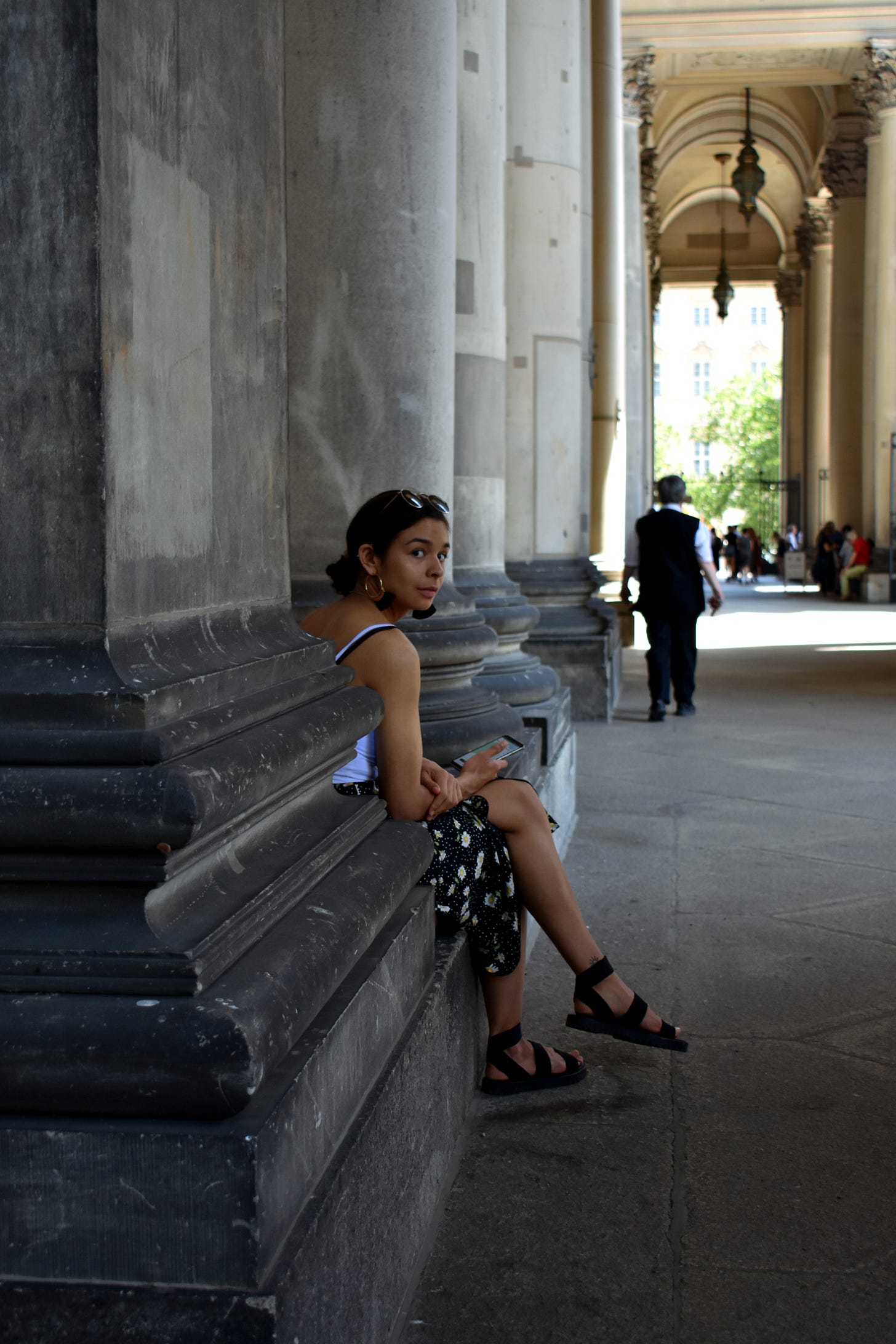Pauline Jeremie: “I get jealous of monoracial people”
The founder of Middleground on a draining therapist, the trouble with terminology and mixed struggles
Hi, welcome back to Mixed Messages! This week, I speak to Pauline Jeremie, founder of Middleground magazine, who is of Martiniquais and French heritage. Pauline’s incredible magazine is something that inspired this newsletter, so I was thrilled to hear her story, including how a lack of connection to a part of your identity can be traumatic.
How would you define your ethnicity?
My dad was Black (half-Carib and a quarter-Arawak), my mum is white (of Celtic and Germanic heritage) and they’re both French. My dad was from Martinique, so a different country but the same flag and similar culture, though Martinique has its own traditions, language and influences.
I struggle with how to refer to myself. In French, we have a word – métis – which means ‘mixed people’. In English, I feel more divided having to call myself biracial or mixed-race. I tried calling myself Franco-Caribbean, but my parents are the same nationality so that didn’t make sense. I haven’t found the word that I’m comfortable with in English; I’d like a concept that makes me feel whole.
Do you feel connected to your culture?
My dad died when I was very young and didn’t pass his creole language on to me, so when I went to Martinique it was jarring not to be able to communicate with people. It reminded me that I didn’t fully belong there.
After my dad passed, my school and family environments were very white. Unconsciously, I convinced myself that I was white. I straightened my hair and never had contact with my Caribbean culture. It was only later in life, when I faced racism, that I realised that the world was always going to see me in a different way.
I mainly learned about my culture through my mum, but she had a white lens on things. Recently, relatives on my dad’s side found me on Facebook and I’m learning about my heritage through them. It’s like a scavenger hunt, trying to piece myself back together, but also challenging that I’m seeing for the first time in my life how much I’ve been lacking in knowledge about my own culture.
Has the way you look ever led to assumptions about your identity?
Yes, and it’s been hurtful at times. When I was working in hospitality as a student, I was speaking to some customers in French, and the table next to them asked if they could guess where I was from. They guessed places like Egypt or Jordan, despite the fact that I’d just been speaking French. It made me feel like you had to be white to be European.
Do you ever feel labelled?
Sometimes. It can be very restrictive and put you in boxes that you don’t necessarily feel like you fit into. At the same time, it can be important for some people. I saw a therapist a couple of years ago because I was struggling to understand who I was. I needed to come to terms with being queer and felt like 50% of my heritage was unknown. She asked why it mattered and why I couldn’t just be who I was, but she missed the point. It’s a big part of who I am. It was draining.
I’m not saying to people “label yourself” or “don’t label yourself”. I just want people to have the choice.
Do you ever feel jealous of monoracial people?
Yes, because they can probably relate to their parents and family, unless they’re adopted by a family of a different race. I crave that sometimes. There are very few people talking about the mixed experience and such a lack of resources. It can be quite lonely.
Is that why you started Middleground?
Partly, yes. It began when my mum started calling me the N word. She doesn’t understand why I have a problem with that. I started to feel really isolated, with no Black friends I could share the pain with. I looked for an online community, but couldn’t find any.
With Middleground, I want people to tell their stories the way that they want to tell them, candidly and organically. I wanted people to come and read stories that would echo their experiences, or provide a whole new facet of the mixed experience; a place where they feel understood.
I once applied for funding for Middleground, but the funding body was so patronising. They saw it as my vanity project, rather than something that was vital. For your whole community to be belittled as a hobby was hurtful. I wish more people recognised how much we might be struggling and wanted to help. I guess it’s our turn to pave the way!
If you could describe your mixed experience in one word, what would that be?
Special. While it’s come with many hurdles and struggles, it's also something that links me to incredibly diverse parts of history and blesses me with many different traditions and cultures.
Next week, I’ll be talking to Amanza Smith, star of Netflix’s Selling Sunset. Subscribe to get Mixed Messages in your inbox next Monday!
Mixed Messages is a weekly exploration of the mixed-race experience, from me, Isabella Silvers. My mom is Punjabi Indian (by way of East Africa) and my dad is White British, but finding my place between these two cultures hasn’t always been easy. That’s why I started Mixed Messages, where each week I’ll speak to a prominent mixed voice to delve into what it really feels like to be mixed.






